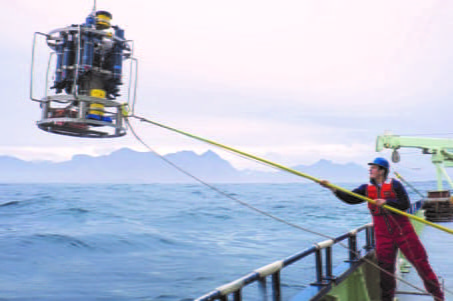Observations over 21 months cast doubt on ideas of what drives Atlantic Ocean ‘conveyor belt’
New findings from an international ocean observing network are calling into question the long-standing idea that global warming might slow down a big chunk of the ocean’s “conveyor belt.” The first 21 months of data from sensors moored across much of the North Atlantic are giving new insight into what controls the strength of the Atlantic Meridional Overturning Circulation, a system of currents that redistributes heat around much of the Western Hemisphere.
Researchers had thought the strength of that circulation, known by the acronym AMOC, was largely influenced by the sinking of cold freshwater in the Labrador Sea, between Greenland and Canada. And climate simulations suggest that the sea’s deepwater formation might slow as the world continues to warm — which also could slow down the entire Atlantic current system and possibly make temperatures on land in the northeastern United States and the United Kingdom plunge. That concept inspired the (otherwise unrealistic) 2004 climate apocalypse film The Day After Tomorrow.
Read full article: https://www.sciencenews.org/article/climate-change-might-not-slow-ocean-circulation-much-thought



